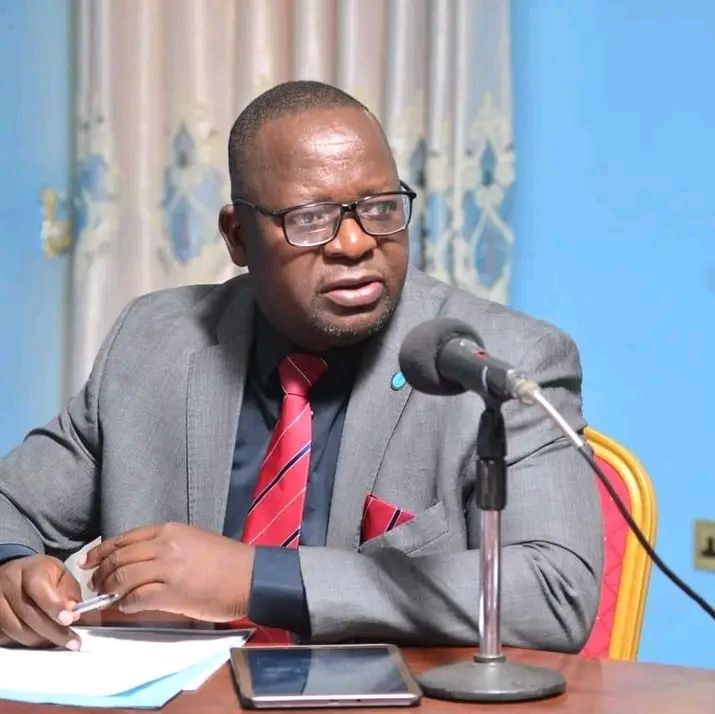By Twink Jones Gadama
The recent critique of the DPP’s convention approach by Lyson Sibande has sparked a heated debate on the party’s intentions.
Sibande argues that the DPP’s decision to allocate positions based on regional affiliations promotes regionalism and tribalism, rather than merit and personal aspirations.
However, a closer examination of the party’s motivations reveals a more nuanced approach, aimed at ensuring equal representation and preventing the dominance of a single tribe in senior positions.

The DPP’s approach is not about promoting regionalism, but rather about creating a more inclusive and representative party structure.
By allocating positions based on regional affiliations, the party seeks to prevent a situation where senior positions are held by individuals from a single tribe, as is the case with the MCP.
The recent MCP convention, where all senior and strategic positions were held by individuals from the Chewa tribe, is a stark reminder of the dangers of tribal dominance in politics.
In contrast, the DPP’s approach ensures that each region has a fair share of positions, preventing any one tribe from monopolizing power.
This approach is not about restricting opportunities based on geography, but rather about creating a level playing field where individuals from all regions can compete for positions based on their merit and aspirations.
Furthermore, the DPP’s approach is not communistic, as Sibande suggests.
Rather, it is a pragmatic response to the realities of Malawian politics, where tribal affiliations often play a significant role.
By acknowledging and addressing these realities, the DPP is taking a step towards creating a more inclusive and representative party structure.
The DPP’s convention approach is not about promoting regionalism or tribalism, but rather about creating a more inclusive and representative party structure.
By ensuring equal representation and preventing tribal dominance, the party is taking a step towards creating a more equitable and just political system.
One of the main criticisms leveled against the DPP is their decision to allocate positions based on regional affiliations.
Critics argue that this approach may limit the opportunities for individuals to compete for positions based on their merit and aspirations.
However, it is important to note that the DPP’s convention approach does not restrict individuals from competing for positions based on their merit.
In fact, it allows for individuals from all regions to participate in the political process and contribute their skills and expertise to the party.
Moreover, by ensuring that each region has a fair share of positions in the party, the DPP is promoting diversity and inclusivity within its ranks.
This approach allows for a wide range of perspectives and experiences to be represented in decision-making processes.
Diversity in political parties is essential to ensure that all voices are heard and considered when making important policy decisions.
By implementing regional quotas, the DPP is working towards creating a more inclusive and representative party structure.
It is worth noting that the DPP’s approach is not unique to Malawian politics.
Many political parties around the world have regional quotas or affirmative action policies in place to ensure diverse representation within their organizations.
In countries with diverse populations like Malawi, it is crucial for political parties to reflect the various regions and tribes that make up the population.
By implementing regional quotas, the DPP is recognizing and valuing the contributions of individuals from all backgrounds.
Critics of the DPP’s convention approach often accuse the party of promoting tribalism and nepotism.
However, it is important to acknowledge that the DPP’s approach is a strategic decision to prevent the concentration of power within a single tribe and promote a more equitable distribution of positions within the party.
By prioritizing inclusivity and diversity, the DPP is setting a positive example for other political organizations to follow.
In a country as diverse as Malawi, it is crucial for political parties to foster a sense of unity and shared purpose among their members.
By ensuring that all regions have a voice in the party’s decision-making processes, the DPP is working towards creating a more harmonious and inclusive society.
The party’s commitment to regional quotas should be seen as a positive step towards addressing historical inequalities and promoting social cohesion.
Ultimately, the DPP’s convention approach should be understood as a well-intentioned effort to promote inclusivity and prevent tribal dominance within the party.
By prioritizing inclusivity and diversity, the party is laying the foundation for a more prosperous and united future for all Malawians.
The DPP’s commitment to regional quotas is a reflection of their dedication to creating a more equitable and representative political system in Malawi.
In conclusion the DPP’s convention approach is not about imposing restrictions on individuals based on their tribe or region.
Instead, it is about creating a fair and transparent process for selecting party leaders and representatives that takes into account the diversity of the Malawian population.
By implementing regional quotas, the DPP is taking a proactive stance towards building a more unified and diverse party structure that can effectively represent the interests of all Malawians.


